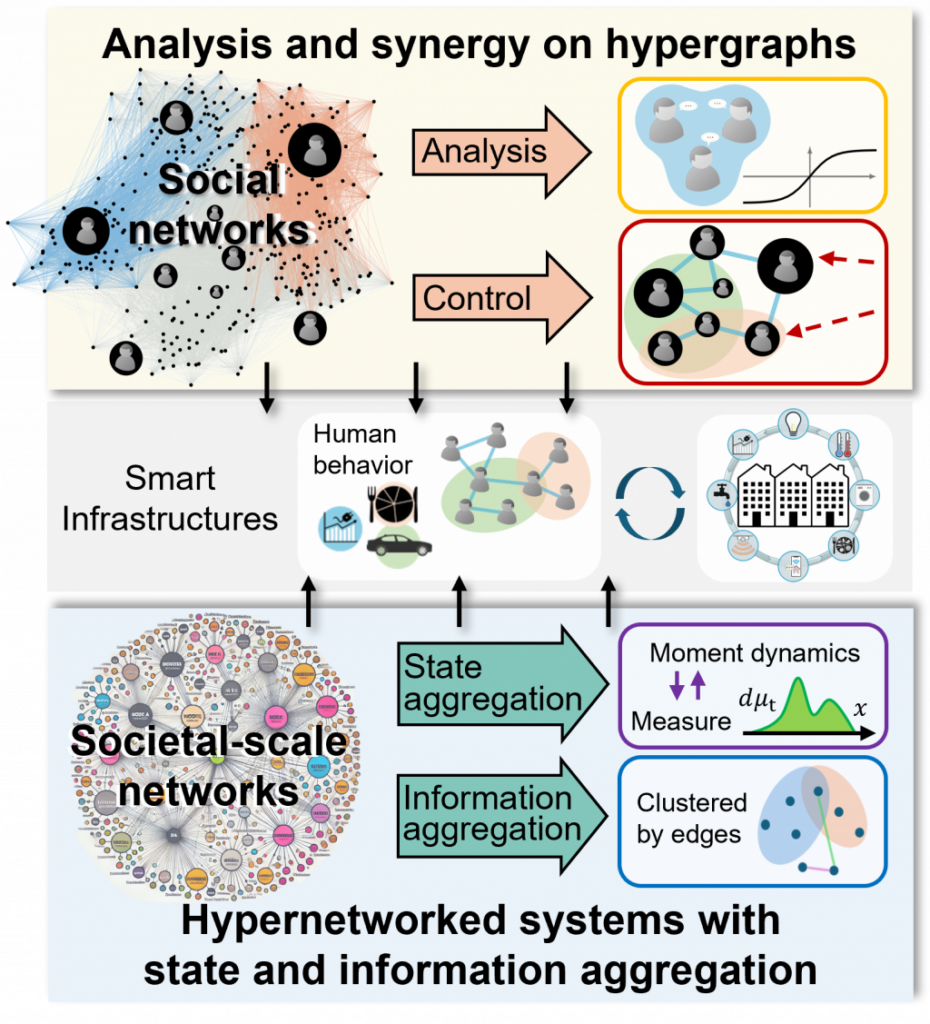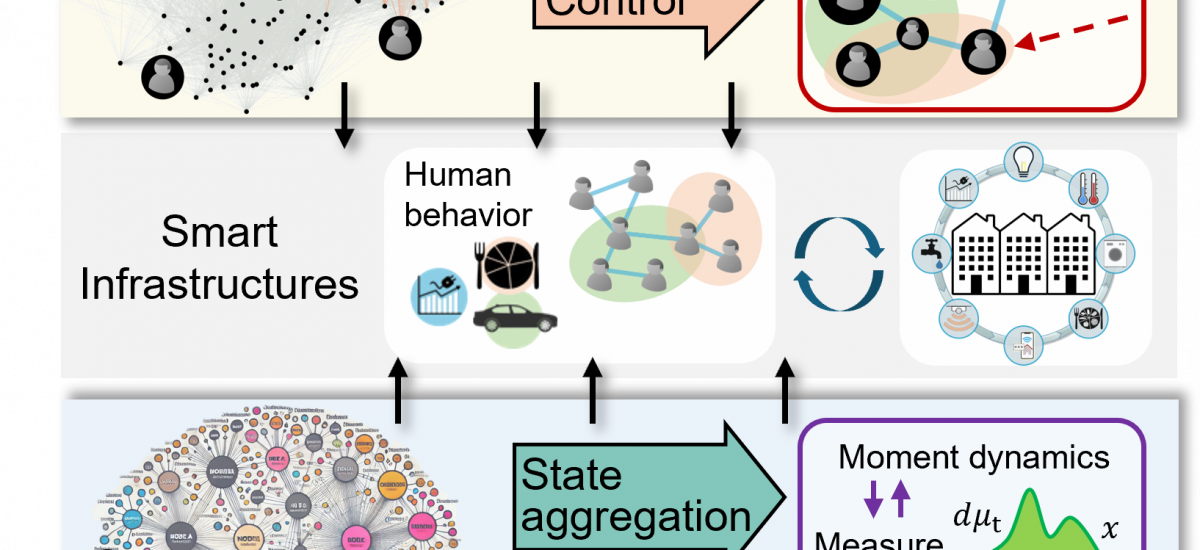About the project
Objective
The project aims to develop analysis and synergy mechanisms for complex systems consisting of high-order interactions, with a particular focus on opinion and societal-scale dynamics on hypernetworks. The ultimate goal is to apply the methodology and insight derived from collective behaviors of social dynamics on hypernetworks and moment-based approaches in societal-scale networked systems to design more efficient and sustainable infrastructures. These include transportation systems, smart grids, and smart buildings, where human decisions and group interactions are pivotal.

Background
In recent years, there has been a growing interest in studying the collective behavior of systems with higher-order interactions. The motivation stems from a practical need in real-world applications where the phenomena observed in complex systems cannot be adequately captured by considering only pairwise interactions between agents. Instead, these systems require the inclusion of higher-order interactions, often represented by hypergraphs or simplicial complexes. Such a need is evident in numerous applications, ranging from neuron dynamics to protein interaction networks, and from ecological systems to social systems. Understanding how these high-order interactions affect collective behaviors in social dynamics and incorporating their effects into human-involved infrastructures is greatly needed.
Crossdisciplinary collaboration
Our research team is formed by PIs from two KTH Schools, Angela Fontan (KTH/EECS) and Silun Zhang (KTH/SCI). The project team will also include a postdoctoral researcher with a strong background and interest in networked systems, control and systems theory, optimization, and large-scale system modeling.



